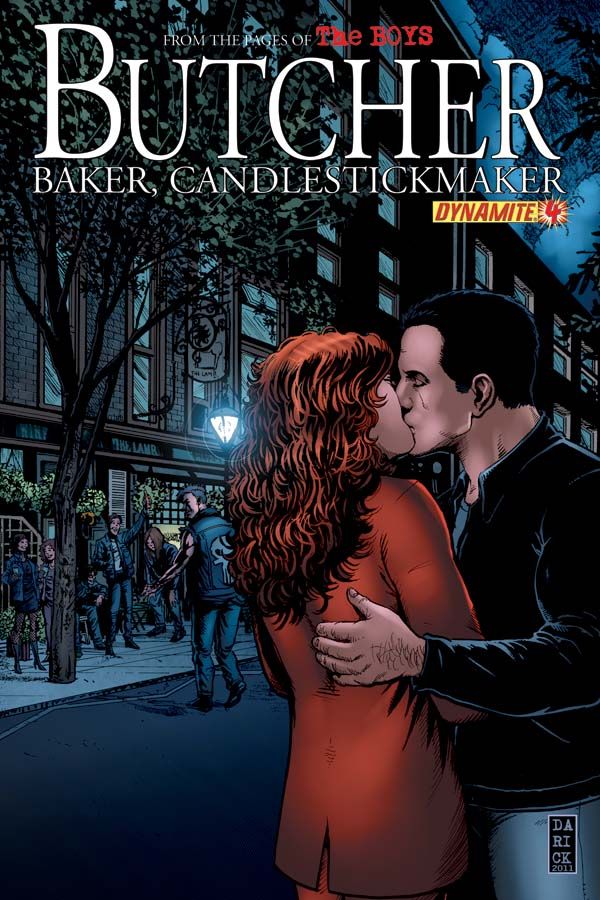We all knew it was coming. Way back when "The Boys" began, Butcher told Hughie about how his wife died. It's never been a secret or something hidden from the readers. When "Butcher, Baker, Candlestickmaker" began to tell the story of Butcher's life before "The Boys," the death of his wife was never in doubt. When she first entered the series, her fate was sealed. And, yet, damned if what happens doesn't hit like a punch to the gut. Garth Ennis has always been a master of making an event obvious while making you dread it coming, and he does it again here with Becky Butcher.
The build-up to the horribleness is designed to play with the readers' expectations. Ennis knows that for that scene to have any power at all, he needs to make us like Becky and like her and Butcher being together. He accomplished a lot of that last issue, putting the final touches on here. He throws in a scene of the two discussing having kids and Butcher wanting to put it off, making what happens later even more painful and biting. Butcher even more than holds his own in a conversation about politics with her friends, giving them a chance to unify a little more. Basically, this is a happy couple that's good together.
The scene where she dies is built to in a somewhat obvious fashion with the two on vacation at a place where the Seven were needed to defeat some villain. When she mentions that the supes are creepy and how Butcher is more of a man than they are, you know exactly who heard it and what would happen later. Her death is handled about as creepily as possible with Darick Robertson drawing this horrible floating baby with glowing eyes that's still connected by the umbilical cord. It's the sort of image that sticks with you.
Up until then, Robertson is at ease drawing the day-to-day life of the young married couple. His Butcher is so relaxed and casual in his mannerisms. With his departure from the main series so long ago, it's easy to forget that Robertson co-created the character and knows how to draw him better than anyone. The biggest visual impact he has on this book, in a way, is how much he draws Butcher smiling. It's so different from how Butcher usually is and lends itself to the build-up to the final scene. We see how happy he is and know that that's going to be taken away soon enough.
The events of this issue are not surprising and they still manage to connect. There's a sense of dread throughout the issue that grows as you read and just smacks you in the face. Ennis is a master of this technique and, with Robertson, pulls it off expertly here. You know what's going to happen and it's worse than you think you know.

